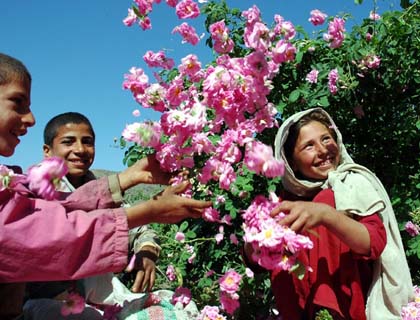Afghan youth are growing up at a critical moment in Afghanistan. This country is at a crossroad between continuing conflict and ongoing dialogue. As I travel around the country speaking to young men and women engaged in civil society I am increasingly told – this is not the country we want, we want better, we can do better. This is exactly what we should be hearing from a new generation whose hopes and dreams of a better future transcend 40 years of conflicts. Youth often understands better that we can and must transcend our cultural differences in order to reach our shared goals, as Secretary-General Ban Ki-moon has said.
We, as representatives of the United Nations, must not allow these youth to fall into disillusionment. Our job is to work for them – and with them – to make sure they can inherit the world promised by the United Nations Charter built on dialogue and mutual understanding.
Dialogue and mutual understanding is the theme for the International Year of Youth which wraps up on Thursday. The theme was chosen by the UN General Assembly, of which Afghanistan has been a member since 1945, to promote the ideals of peace, respect for human rights and solidarity across generations, cultures and religions. The year might be coming to an end, but our obligations to youth are not.
I am aware of many of the challenges young people continue to face. In meetings in the regions, I hear from dedicated young women who just out of university must persuade their family and community to allow them to work in crowded classrooms of 50 or more students with very little teaching material every day.
I hear from young men about the pressures of supporting their wives, children and extended families, and their fears about employment. I also meet young Afghan journalists who have lost friends and receive death threats, but still continue to report from remote districts of this country.
The international community is working with Afghan partners – both within the government and outside – to try to expand the horizons of opportunity for young women and men and answer their legitimate demands for education, health care, decent work, and above all dignity and security.
With 70 per cent of the population under 25 years of age, it is the Afghan youth that is sacrificing and being sacrificed during this unresolved conflict.
The Mid-Year Protection of Civilians Report released by UNAMA Human Rights Unit last month shows that more Afghans are dying than ever before, most through indiscriminate uses of landmine-like pressure plate improvised explosive devices (IEDs). I take this opportunity to reiterate on behalf of the UN our calls on parties to the conflict to do more to respect civilians and to strengthen civilian protection.
People who care about their nation do not destroy it.
The realities of youth in Afghanistan are extremely diverse. The reality of a young man in Ghazni trying to support his extended family could not be more different from a young man in Herat who is able to study full-time. The fragmentation of experiences and aspirations of youth in Afghanistan is something we need to recognize.
Despite the individual challenges, you are connected with your young neighbours on your street and across the borders much more than you might realize.
You are part of the same generation, you watch television and play sports, you volunteer to help others, many of you study, many more work to help parents and siblings, and you all likely look around and think – I want more.
The United Nations in Afghanistan is working in many ways to promote a better life for you, including by working with the Government to include youth more in its decision making and planning.
Our agencies and programmes work together on five main priorities which include youth: 1) peace, reconciliation and reintegration; 2) human rights protection and promotion; 3) sub-national governance and the rule of law; 4) maternal and newborn health; and 5) sustainable livelihoods.
But the international community and its partners can only do so much. Sustainable positive change in Afghanistan will only exist if you, the young people of this country, create and maintain it.
Effective youth participation means that young people are not seen as passive recipients of or the root causes of society's problems. Instead, they are stakeholders who make important contributions to the country's development.
You have an opportunity and a responsibility to go beyond the conflict of the past decades and take ownership of your country. If you do not bring about positive change, who will?

